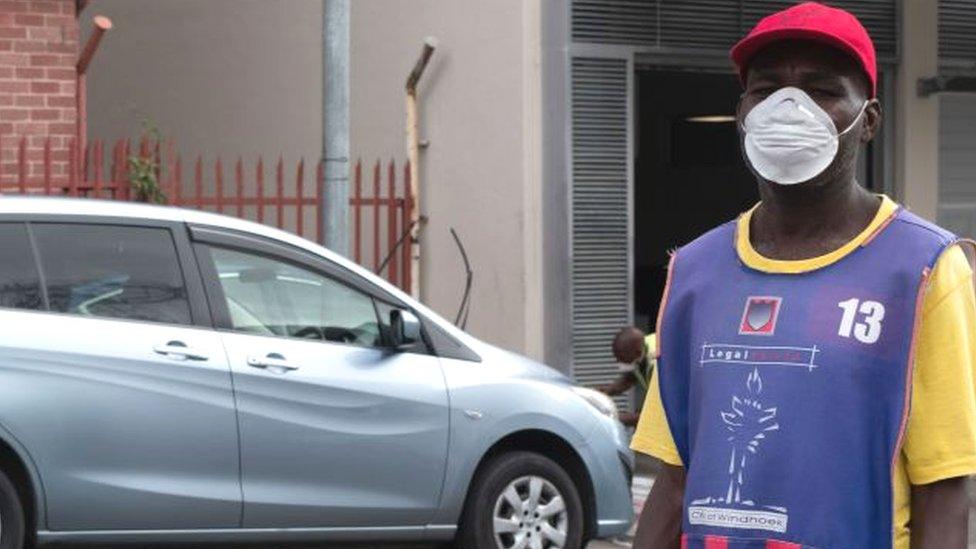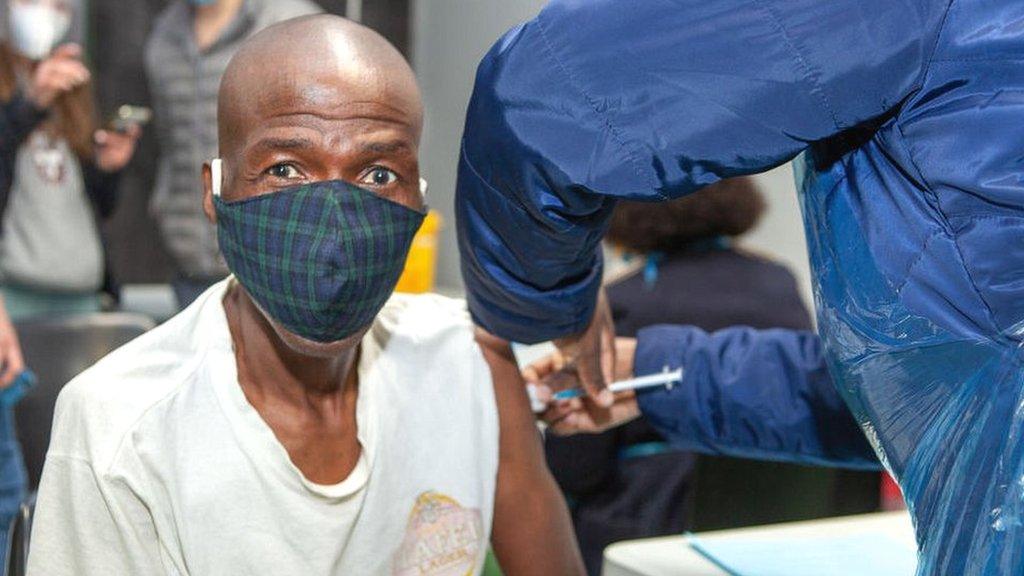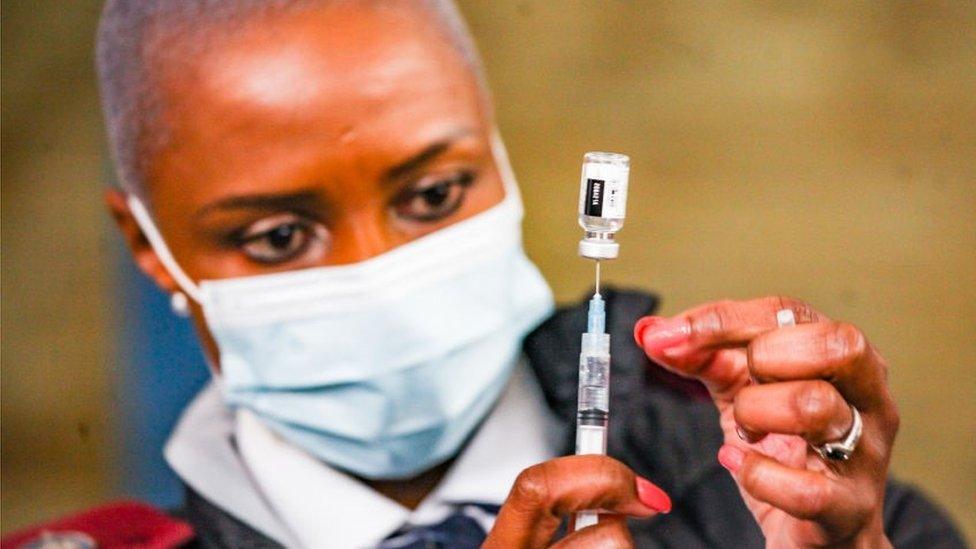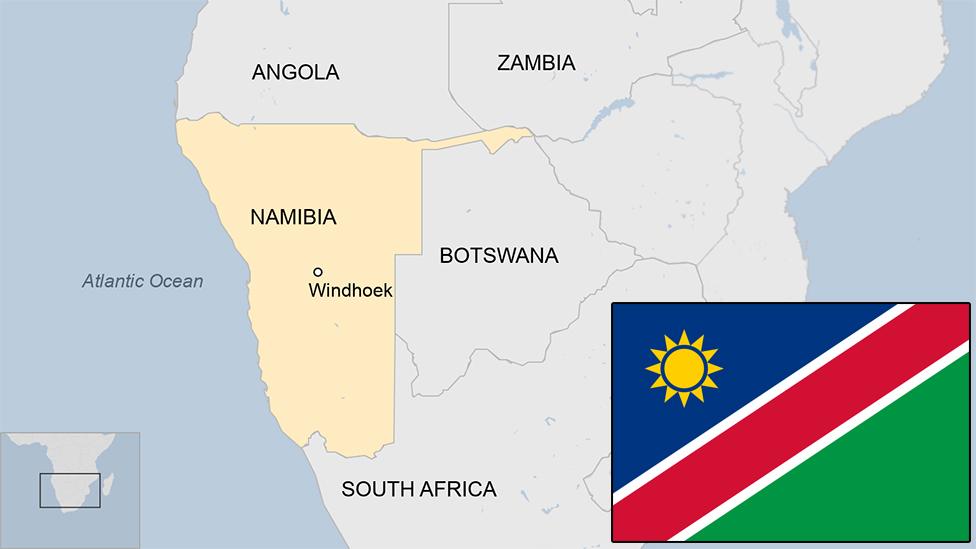Covid in Namibia: Mortuaries at capacity
- Published

Namibia's president has urged people to stick to new restrictions to help fight the spread of the virus
Namibia's President Hage Geingob has said his country is facing a "dark and sombre moment" as coronavirus deaths and cases rapidly increase.
The southern African nation is currently experiencing the worst daily death rate on the continent.
The health system is stretched and the country's mortuaries "have reached maximum capacity", Health Minister Kalumbi Shangula said.
The president announced new restrictions to stem the rise in cases.
These include extending a night-time curfew and stopping movement between the country's regions.
Addressing the nation, Mr Geingob said that 513 Namibians had died from the virus in the last 15 days.
This is a huge blow for a country of just 2.5 million.
On average, 15 people per million are dying every day in Namibia, a higher number than Seychelles (13 per million) and Tunisia (7.5 per million), and among the worst rates in the world, according to the Our World in Data website, external.
South Africa, which has the continent's highest number of total deaths from coronavirus - just over 60,000 - has a daily death rate of three per million.
Everyone in Namibia has either buried a close relative who has died from Covid or knows someone who has, said the health minister, who was speaking after the president.
"Our country is literally in an existential struggle against this pandemic. We are in a fight for our very lives," Dr Shangula added.
Coronavirus cases have trebled since the beginning of June and the situation is likely to continue to get worse until mid-August at the earliest, the president told Namibians.

You may also be interested in:

Hospital capacity has been increased and the country is taking steps to boost the supply of medical oxygen. Last week, Dr Shangula told the BBC's Focus on Africa programme that the country's oxygen reserves had been exhausted.
Less than 5% of Namibians have received at least one dose of a coronavirus vaccine.
The vials that the country received have almost all been used up but more deliveries are expected in July and August, the health minister said.
The country has now set aside $34m (£25m) to buy more doses.

Grim game of dominos
Samantha Granville, BBC News, Windhoek
Walking around the capital, Windhoek, I see a tale of two cities.
Half of the people I encounter are conscientious about hygiene and social distancing, while the other half act as though the virus doesn't exist.
And even though the government has implemented restrictions, there's some confusion. You have to use sanitiser before going into the shops, but there is no limit on how many people can enter. You can't buy or be served alcohol in shops or cafes on certain days, unless the restaurant is in a hotel.
So these rules are baffling some and they are getting worried.
I spoke to one woman whose family lost six members in the past two weeks, leaving her and her two-year-old nephew alone.
She says the virus is treating her community like a game of dominos: once one person is knocked down, you are just waiting for your time.
Another man told me he doesn't believe the vaccine will actually work, despite scientific evidence that it does. He is refusing to let his family get the shot, even though he knows several people who have died from the virus.
While there are mixed feelings on how to stop the spread of the virus in Namibia's capital, one thing is for sure: people are angry about further lockdown restrictions and wish the government would have done more, sooner.
Related topics
- Published31 December 2021

- Published29 June 2021

- Published10 December 2024
